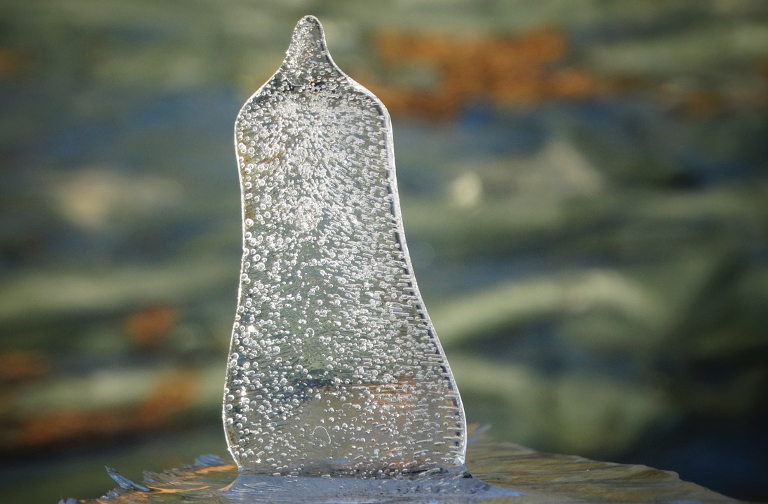I’m having trouble keeping up with the steady stream of human insanity stories. The past week was dominated by NFTs and cryptoart stunners. I don’t want to get into too many depressing details, but as a modest example of how looney people are a virtual house was sold for $500,000.
Human imagination is a great thing, and it is fun to have fantasies and be creative with one’s thoughts. I can get caught up in a great science fiction novel and find tales of fairy creatures and elves delightful. Art and innovation are important for human expression and culture. I get that.
But what seems to be happening is a widening gulf between the world in people’s brains and the real world. If you think of these as a Venn diagram then what would be ideal, in my opinion, is for the brain world to have a broad overlap with the real world. It can never be perfect of course. We must create mental models and we have limited senses, etc., but shouldn’t we strive to be grounded in reality for the most part and not get too carried away with our imaginations? When people get too delusional they don’t function well.
I fear we are in a state of mass delusion, not understanding how these virtual worlds are created and maintained. None of this is free and it all connects painfully with the real world. Cryptocurrencies using blockchain technologies are major users of global electricity and resulting emissions, are disrupting power grids, and are responsible for massive real world mining operations to yield tons of metals and plastics needed for the manufacture of computers, and then are contributing to oodles of electronic waste. It is silly, destructive, and doesn’t seem to serve any beneficial social function.
So crypto-crazy was my pain last week. But there is always a new madness contender and today it came to my attention that, with much fanfare and controversy, baby bottles are being used by coffee shops to put hot drinks for adults. Check it out on social media, big deal.
Hot drinks into plastic bottles reminded me of the brief flurry of press around the release of the book by Shanna Swan, Count Down: How Our Modern World Is Threatening Sperm Counts, Altering Male and Female Reproductive Development, and Imperiling the Future of the Human Race. It is an update of the work that led to the 1996 book Our Stolen Future: Are We Threatening Our Fertility, Intelligence, and Survival?–A Scientific Detective Story. The implications sound like something out of the movie Children of Men or The Handmaid’s Tale.
Back to the baby bottles and why they are nutty, here’s a quote from an interview with Swan:
Then there’s the bisphenols, which are compounds that act on estrogen, as opposed to the phthalates, which act on testosterone. They make plastics hard. They’re found in baby bottles, drinking water bottles, and other products. The most familiar is BPA but there are substitutes like BPS, BPF, and so on.
The whole litany of chemicals Swan reviews is shocking because it is a who’s who of modern life, where we are constantly under exposure from children’s pajamas and toys, cosmetics, food packaging, our furniture, and of course to the pesticides used when growing our food. More from the interview:
Another class of chemicals that are very concerning are pesticides going all the way back to DDT and currently all the way up to Roundup. These are hormonally active in many, many ways, depending on the particular formulation. They get into our foods. They’ve also been found in people who are handling these products occupationally. Pesticides are a major source of exposure and a real risk to our endocrine system.
Disruptions to endocrine systems happen with extremely low concentrations of chemicals. We basically live in an unregulated chemical stew and Swan does some extrapolation of trends with sperm counts and other dysfunctions to suggest human procreation is at risk within 2-3 decades. Makes me wonder about all the other creatures out there being bombarded by novel compounds, might this be contributing to the crash of animal populations too?
Well, I am glad to be an organic farmer. We avoid these molecules and grow food that should be safe to consume. But I am surrounded by fields where pesticides are applied, and my home is filled with chemicals to keep me “safe” such as flame retardants. None of this I want. Not the massive chemical industry pushing novel products, not the absurd fads that highlight our collective madness and waste. The interview of Swan in 2021 is eerily similar to the one of Theo Colburn in 1998. Do we ever learn? I’m fighting a funk at the moment and look forward to getting outside and seeing some Spring wildflowers. Nature is resilient, life is irrepressible. Given time the damage wrought by people will mostly be undone. I just don’t know if people will be around to see that.
Jason Bradford co-hosts the Crazy Town podcast, which explores crazy-making topics like these with insight and humor.
Teaser photo credit: Image by keziaschen from Pixabay





